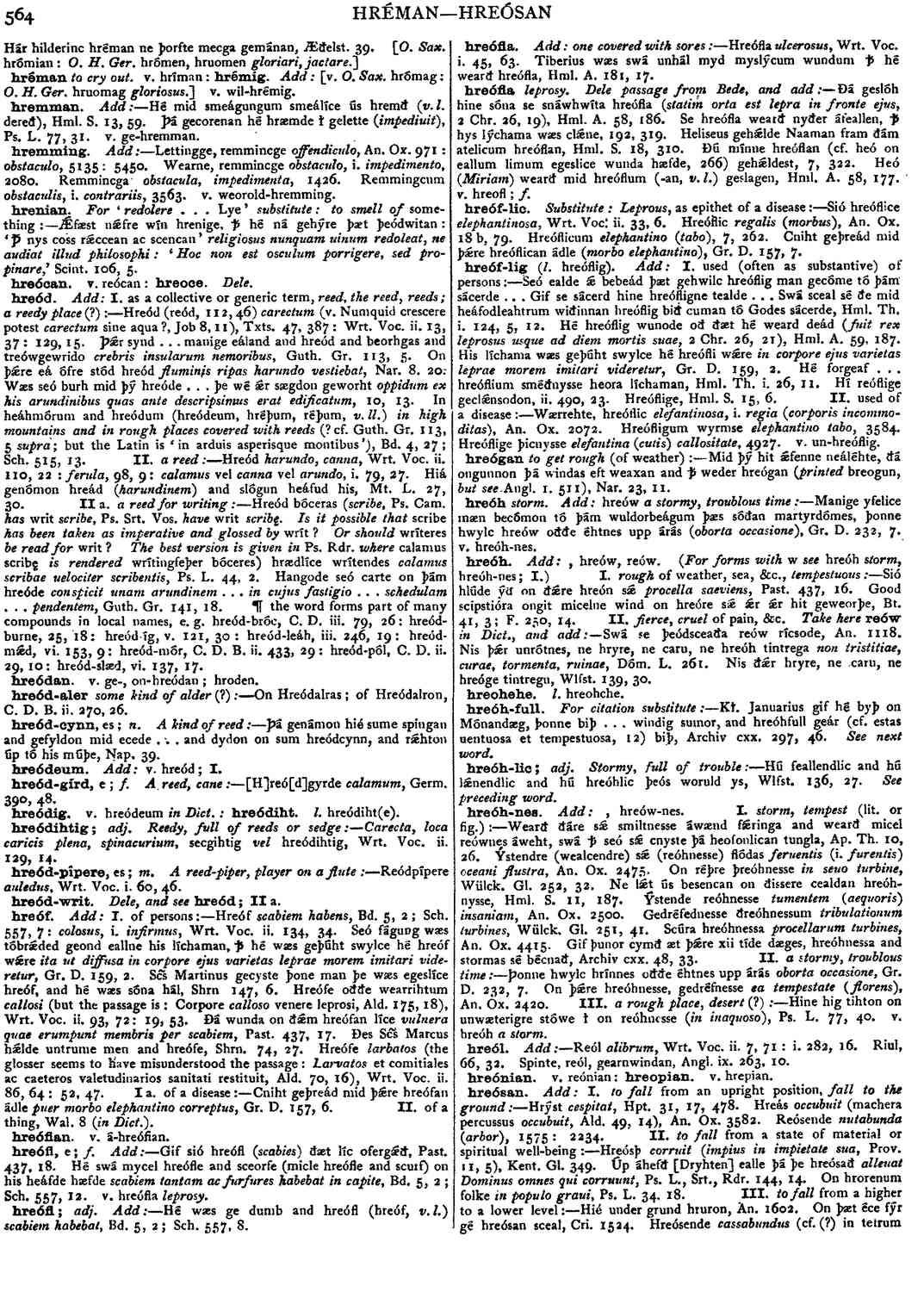hreóf
-
Hreóf
scabiem habens, Bd. 5, 2; Sch. 557, 7: colosus, i. infirmus,
- Wrt. Voc. ii. 134, 34.
-
Seó fágung wæs tóbrǽded geond eallne his líchaman, ꝥ hé wæs geþúht swylce hé hreóf wǽre
ita ut diffusa in corpore ejus varietas leprae morem imitari videretur,
- Gr. D. 159, 2.
- Sc̃s Martinus gecyste þone man þe wæs egeslíce hreóf, and hé wæs sóna hál, Shrn 147, 6.
-
Hreófe oððe wearrihtum callosi (but the passage is: Corpore
calloso
venere leprosi,- Ald. 175, 18), Wrt. Voc. ii. 93, 72: 19, 53.
-
Ðá wunda on ðǽm hreófan líce
vulnera quae erumpunt membris per scabiem,
- Past. 437, 17.
-
Ðes Sc̃s Marcus hǽlde untrume men and hreófe,
- Shrn. 74, 27.
-
Hreófe larbatos (the glosser seems to have misunderstood the passage: Larvatos et comitiales ac caeteros valetudinarios sanitati restituit, Ald. 70, 16), Wrt. Voc. ii. 86, 64: 52, 47. I a. of a disease :-- Cniht geþreád mid þǽre hreófan ádle
puer morbo elephantino correptus,
- Gr. D. 157, 6.
Bosworth, Joseph. “hreóf.” In An Anglo-Saxon Dictionary Online, edited by Thomas Northcote Toller, Christ Sean, and Ondřej Tichy. Prague: Faculty of Arts, Charles University, 2014. https://bosworthtoller.com/53154.
Checked: 0